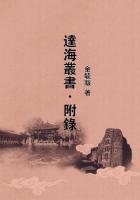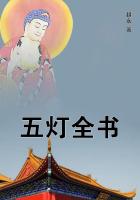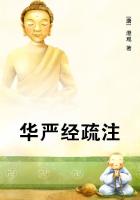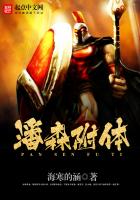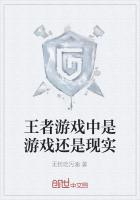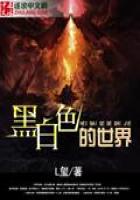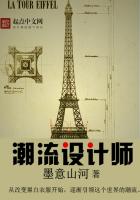This distinction has but little obvious significance in a modern industrial community, and it has, therefore, received but slight attention at the hands of economic writers. When viewed in the light of that modern common sense which has guided economic discussion, it seems formal and insubstantial. But it persists with great tenacity as a commonplace preconception even in modern life, as is shown, for instance, by our habitual aversion to menial employments. It is a distinction of a personal kind -- of superiority and inferiority. In the earlier stages of culture, when the personal force of the individual counted more immediately and obviously in shaping the course of events, the element of exploit counted for more in the everyday scheme of life. Interest centred about this fact to a greater degree.
Consequently a distinction proceeding on this ground seemed more imperative and more definitive then than is the case to-day. As a fact in the sequence of development, therefore, the distinction is a substantial one and rests on sufficiently valid and cogent grounds.
The ground on which a discrimination between facts is habitually made changes as the interest from which the facts are habitually viewed changes. Those features of the facts at hand are salient and substantial upon which the dominant interest of the time throws its light. Any given ground of distinction will seem insubstantial to any one who habitually apprehends the facts in question from a different point of view and values them for a different purpose. The habit of distinguishing and classifying the various purposes and directions of activity prevails of necessity always and everywhere; for it is indispensable in reaching a working theory or scheme of life. The particular point of view, or the particular characteristic that is pitched upon as definitive in the classification of the facts of life depends upon the interest from which a discrimination of the facts is sought. The grounds of discrimination, and the norm of procedure in classifying the facts, therefore, progressively change as the growth of culture proceeds; for the end for which the facts of life are apprehended changes, and the point of view consequently changes also. So that what are recognised as the salient and decisive features of a class of activities or of a social class at one stage of culture will not retain the same relative importance for the purposes of classification at any subsequent stage.
But the change of standards and points of view is gradual only, and it seldom results in the subversion of entire suppression of a standpoint once accepted. A distinction is still habitually made between industrial and non-industrial occupations; and this modern distinction is a transmuted form of the barbarian distinction between exploit and drudgery. Such employments as warfare, politics, public worship, and public merry******, are felt, in the popular apprehension, to differ intrinsically from the labour that has to do with elaborating the material means of life. The precise line of demarcation is not the same as it was in the early barbarian scheme, but the broad distinction has not fallen into disuse.
The tacit, common-sense distinction to-day is, in effect, that any effort is to be accounted industrial only so far as its ultimate purpose is the utilisation of non-human things. The coercive utilisation of man by man is not felt to be an industrial function; but all effort directed to enhance human life by taking advantage of the non-human environment is classed together as industrial activity. By the economists who have best retained and adapted the classical tradition, man's "power over nature" is currently postulated as the characteristic fact of industrial productivity. This industrial power over nature is taken to include man's power over the life of the beasts and over all the elemental forces. A line is in this way drawn between mankind and brute creation.
In other times and among men imbued with a different body of preconceptions this line is not drawn precisely as we draw it to-day. In the savage or the barbarian scheme of life it is drawn in a different place and in another way. In all communities under the barbarian culture there is an alert and pervading sense of antithesis between two comprehensive groups of phenomena, in one of which barbarian man includes himself, and in the other, his victual. There is a felt antithesis between economic and non-economic phenomena, but it is not conceived in the modern fashion; it lies not between man and brute creation, but between animate and inert things.
It may be an excess of caution at this day to explain that the barbarian notion which it is here intended to convey by the term "animate" is not the same as would be conveyed by the word "living". The term does not cover all living things, and it does cover a great many others. Such a striking natural phenomenon as a storm, a disease, a waterfall, are recognised as "animate"; while fruits and herbs, and even inconspicuous animals, such as house-flies, maggots, lemmings, sheep, are not ordinarily apprehended as "animate" except when taken collectively. As here used the term does not necessarily imply an indwelling soul or spirit. The concept includes such things as in the apprehension of the animistic savage or barbarian are formidable by virtue of a real or imputed habit of initiating action. This category comprises a large number and range of natural objects and phenomena. Such a distinction between the inert and the active is still present in the habits of thought of unreflecting persons, and it still profoundly affects the prevalent theory of human life and of natural processes; but it does not pervade our daily life to the extent or with the far-reaching practical consequences that are apparent at earlier stages of culture and belief.

